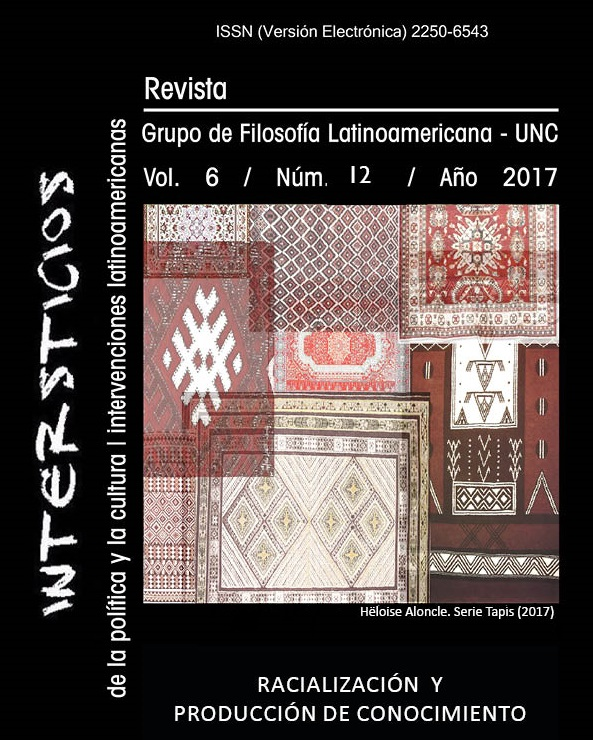Indigenism and blanquitude in the racist order of the nation
Keywords:
indigenisms, indianism, racism, nation.Abstract
In this article, I propose to address the complexity of the Indianist critique of colonialism based on the problem of race/racism that constitutes modern Latin American nations. I proceed as follows: first, I briefly approach Reinaguian Indianism to indicate a problem and, at the same time, a place shared by Latin American indigenism: the racial question linked to the "national problem". Secondly, I evoke Bolívar Echeverría´s contribution on the racism of whiteness (blanquitud and blancura) which constitute modern nations. Third, I link both racist variants (blancura and blanquitud) with the indigenisms, in particular with four indigenist currents of the first half of the 20th century as Henri Favre puts it, with whom I test a critical interlocution. Finally, as a conclusion, I delimit a hypothesis on the indigenisms present in Argentina, arguing that there is a multicultural neoindigenism typical of a "tolerant racism", not split from a virulent racism, which has its roots in the social Darwinism of the XIXth and early XXth centuries.
Downloads
Downloads
Published
Issue
Section
License
Authors who have publications with this journal agree to the following terms:
a. Authors will retain their copyright and grant the journal the right of first publication of their work, which will simultaneously be subject to the Creative Commons Attribution License that allows third parties to share the work as long as its author and first publication in this journal are indicated.
b. Authors may adopt other non-exclusive license agreements for distribution of the published version of the work (e.g., deposit it in an institutional telematic archive or publish it in a monographic volume) as long as the initial publication in this journal is indicated.
c. Authors are allowed and encouraged to disseminate their work through the Internet (e.g., in institutional telematic archives or on their web page) after the publication process, which may produce interesting exchanges and increase citations of the published work (see The effect of open access).


